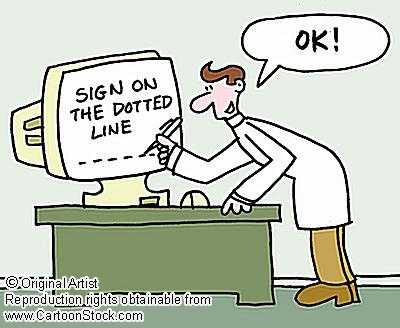 Is a paperless system truly paperless? Everyone is slowly switching from a paper system to a paperless system. Which means all the conversion of data from paper into the computer system. Most of the time, it's for easy access and filing.
Is a paperless system truly paperless? Everyone is slowly switching from a paper system to a paperless system. Which means all the conversion of data from paper into the computer system. Most of the time, it's for easy access and filing.We all hate the idea of writing up forms, bills and other documents and then after completing them, file them away in some godforsaken cabinet you hope would disappear down a black hole and magically snap your fingers and reappear the moment you need the documents the most.
A few years down the road, this cabinet grows and spawns a few more cabinets of the same type, containing endless amounts of documents. Then someone will decide that you need a system to file all those documents, let's say alphabetically by year. After a sense of normalcy and order, a few more years down the road and these cabinets take up an entire room, and keep filling up the room with no end in sight. Then you decide that 1 room isn't enough and renovate your office to have a bigger space for filing documents. Eventually, enough's enough. You've completely run out of space, and the documents are still occupying a room or 2 or 3. Then the computer age sets in and everything seems to brighten up - light at the end of the proverbial tunnel. Wrong!
With technology advancing so quickly nowadays, you can get a cheap external or internal harddisk for a relatively cheap price. At the same time, the ability of these harddisk to hold data seems to grow exponentially. Soon, we'll advance to the point of using crystals for holding information like Kryptonians do (thanks Superman!). The latest, at time of writing, is 1 TB (no, not tuberculosis, terabyte). 1 TB is 1000 GB (gigabyte). It's almost like a bottomless pit for data. So, the entire harddisk that fits into the palm of your hand will store documents, data and information from those numerous filing cabinets occupying rooms. Look at that, it's been compacted! Everything is small now, like a microfilm dot.
However, when a paperless system was introduced, it was hallelujah for everyone. Wow, let the computer handle the filing, cataloging and archiving, as long as I don't have to do it. Now, there's a great need for security protocols, standardisation, fault-finding, trouble-shooting and much more. An introduction to audit trails, training on the correct way to sign a document, time stamps, removing mistakes.
It looks like we're replacing 1 system for another, AND adding on much, much more irrelevant things to do. Now, computer printouts have to have signatures, auto-generated reports have to have time and date stamps on top of signatures of operators and people who review them to ensure quality and accuracy before adding their signature to the mix. So, eventually 1 document will have at least 3 signatures (which is a sin!). More effort than it's worth to print out.
Everything mechanical still needs the human touch. Retrieval of information is fast, I said fast, not accurate, if you have all the search parameters wrong, you still won't be able to find what you're looking for. Then we have to worry about power failures, no power, no computer, no work. What else? Viruses, worms, harddisk crashing, backups. The list is endless!
I can almost imagine that all the information will be held on the Internet virtually perhaps 10 years down the road. You don't even need those pesky harddisks that also take up space and run on electricity. Holding information virtually means that even if there's a power failure and you can't access it, the information is still there somehow, lost in cyberspace, but retrievable. We tend to enjoy keeping tons of stuff (aka junk) lying around and pretending it's not there.
Eventually it all boils down to the pros and cons of it all. Is a paperless system more advantageous than a paper one? Human factor plays the most important part in this. Computers haven't been given decision-making abilities to the point that they can make competent and correct ones. This still needs the human touch.
So if proper and logical protocols and methodologies are incorporated into a paperless system, it does become an enjoyable system to work with. Unfortunately, I have yet to see any company or office that has been able to balance these delicate properties, in order to ensure that the majority of all their employees work comfortably and happily - something they ought to work hard on getting right to ensure maximum efficiency!
1 comment:
thankyou nice blog
Post a Comment